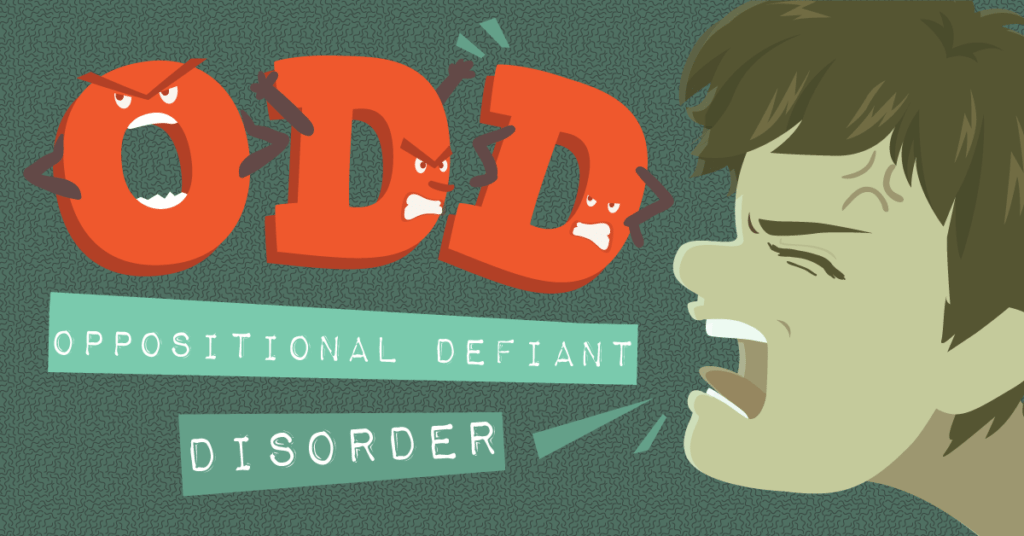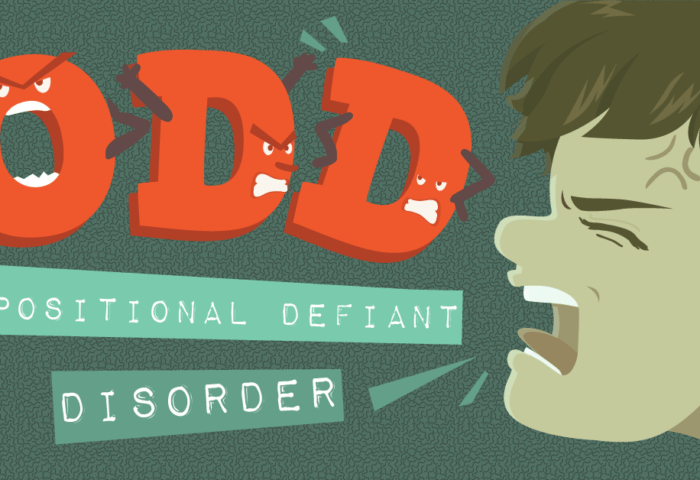
Overly aggressive. Bad temper. Spiteful and vindictive. Not all people with ADHD qualify for the Oppositional Defiant Disorder (ODD). But, an estimated 65% do.
People with ODD can look like anyone, but the negative behavior must last at least 6 months. A timeclock is one way. More common is to determine the frequency that is typically observed in individuals of comparable age and developmental level.
Severity is based upon the prevalence, and occurrence of outbursts. Mild severity occurs in only one setting. It’s determined to be moderate when behaviors occur in at least two settings. More extreme circumstances occur in three or more settings. The condition often extends with time. Early intervention is key.
How do you know?
Not everyone who displays a pattern of negative, hostile, defiant behavior should be classified as having ODD. This is especially true for teens with ADHD. This results from being unable to control impulses as part of their disorder.
Signs typically begin during preschool. They’re almost always observable before the teen years. Professionals use DSM-5 to determine both ADHD and ODD (mental health disorders).
- Has at least 4 symptoms of these categories.
- Angry and irritable mood
- Argumentative and defiant behavior
- Vindictiveness
- Occurs with at least one individual who is not a sibling.
- Causes significant problems at work, school, or home.
- Occurs on its own, rather than as part of the course of another mental health problem.
- Lasts at least 6 months.
Homeward Bound
Parents are often the first to identify exaggerated behaviors. The challenge is trying to determine comorbidity. Is it ADHD? Is it ODD? Both? The best option is to use strategies that impact both.
- Recognize little victories. Progress in measured steps.
- Take a time out. Conflict makes things worse.
- Pick your battles. Not everything is a crisis.
- Don’t go it alone. Look for supports from doctors, friends and schools.
- Avoid burnout to manage stress. Try mindfulness exercises.
Medicine’s Take
Most controversial in the treatment of ADHD and ODD comes from the field of medicine. The first question is when to consult a doctor. Parents will see signs that no one else will see. Teacher observations can also be helpful.
Medications are a common intervention. ADHD meds can reduce ODD symptoms. The initial focus should be on stimulants. Talk to a psychiatrist who is familiar with both.
A less controversial method is counseling. It should involve both the child and the family. Meetings should emphasize how to cope with behaviors, especially under stress.
Behavior modification techniques provide support in a variety of environments. Its challenge is addressing both physical and mental symptoms. Hospitalization may become necessary for patients who present a danger outside to self and others. Ongoing medical oversight is important for healthy progress.
Life in the Classroom
Students with comorbid ADHD and ODD pay a particular challenge in the classroom. It is common for them to refuse to comply with adults’ requests or rules. They have difficulty with peers as these students often blame others for his/her mistakes or misbehavior. Frequent outbursts are common. It’s important to set consistent and appropriate limits and consequences.
- Give praise. Enthusiasm counts.
- Provide clearly defined feedback. Have them repeat the information.
- Convey expectations clearly. Use multiple learning styles.
- Set a few non-negotiable rules. Make it my way or the highway.
- Tailor rewards and punishments based on specific abilities and needs. Let them know it.
ADHD and ODD cause a challenge in separating what disorder impacts specific behaviors. While addressing ADHD first is the recommended practice, ODD should not be ignored. Particularly challenging is the tendency to bother and irritate others. This expands the impact across the home and classroom. Percentages are high.
It’s important to create a structured environment. Adult support is a serious factor as a result of maintaining moment-by-moment awareness. This helps to reduce anxiety, a major factor in controlling symptoms.
An aggressive 2-year-old will likely become an aggressive adult. Fortunately, some become easy going with strategies learned in their teens. Celebrate success.
How do you keep a calm voice under stress?

Leave a Reply